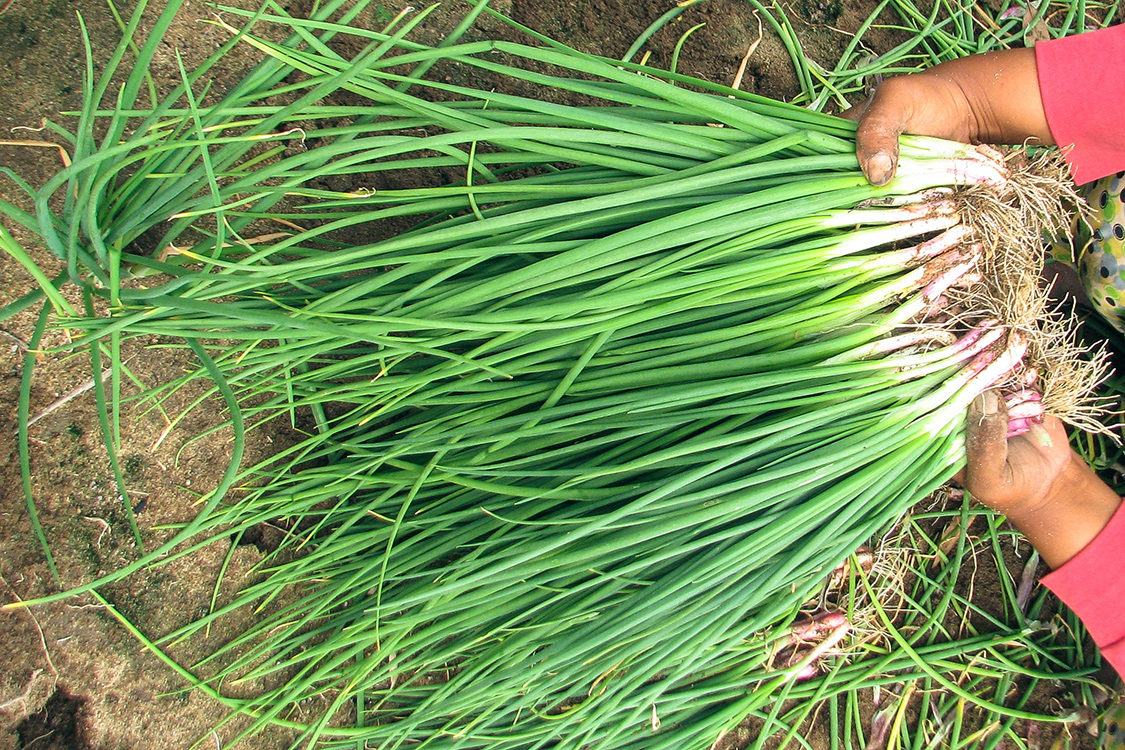Reduce risk to farmers by providing a complete package

Sales
Private companies can accelerate uptake of drip irrigation through integrated sales packages
Smallholder farmers are hesitant to try new technology because of the risks to their livelihood. If it doesn’t work, they not only lose money on the technology, they lose money from not having a harvest to support themselves and sell at market. But, what if someone else helped them by assuming those risks—guaranteeing them all the necessary ingredients for success, not only in installing the equipment, but determining what to grow, and then purchasing the harvest.
Case Study: Jain Irrigation
Beginning in 2000, Jain Irrigation created a complete seed-to-market solution for onion-growing farmers in Maharashtra, India. Jain developed a special variety of white onions for processed onion products. These white onions have a higher pungent taste and a higher solid content (18-20 percent solids, which means less water, compared to red onion with only 8-12 percent solid content). Yields vary but are usually high, averaging around 30 tons per hectare with the best farmers producing up to 60 tons per hectare. As a smart form of contract farming, Jain provides not only the irrigation technology and a sound package of technical assistance (seeds, advisory services, etc.) but also buys back the onion harvest from the farmers and processes them in one of the largest onion dehydration factories.
To support the small onion farmers, Jain has not only designed suitable drip irrigation systems but has also developed an ox-driven seed planting machine. This eliminates the time and hassle of transplanting the onions and has improved the economics of onion growing. It took a long time to develop the right contract farming system and Jain invested a lot into mutual trust building.
With this form of contract farming the farmers have a guarantee of high yields, the right product, and excellent technical assistance. A team of agronomists support the farmers and can be asked for advice through a help-line. Jain has deployed a very strong extension system with over 60 technicians in the field (similar to iDE’s Farm Business Advisors) who live in the villages of their target area, with each technician looking after some 40 hectares. This cooperation scheme now involves over 5,000 contract farmers in a 100 km radius around the onion processing plant, which dries up to 500 tons of onion every day. The product is marketed globally to industrial buyers such as McCormick, Nestlé, and many others.
Today, Maharashtra’s onion farmers are prosperous. Not only can parents send their children to school, but some of children see a future in farming and will continue their parents' farm.
This is just one example of a very clear shift among the global drip companies from promoting just hardware products to integrated solutions.
Both Jain and Netafim have evolved from the pure supply of drip irrigation technologies to holistic solutions for specific crops and target farmers. In addition to the onion example, Jain now offers drip systems for rice, mangoes, and bananas. Each system comes with a package of other technologies such as seeds and even buy-back arrangements and processing. Making these solutions more available to smallholders would be extremely beneficial and have a huge impact on productivity and eradication of poverty.
The Drip+ Alliance helps connect global companies like this with public partners such as SDC and other bilateral donors, multilateral agencies (IFC, IFAD, and the Regional Development Banks), and with the food industry. Each has a role to play in coordinating the integration of sales, service, and market connections. For example, identifying and helping establish a new industry that can add value to a crop (such as the dehydration factory in the Jain example above) is a possibility for organizations focused on the creation of social enterprises.
While these integrated solutions do not work for all crops, it shows promise for many high value crops such as cocoa, for example, where drip irrigation can increase yields up to a factor of ten.

